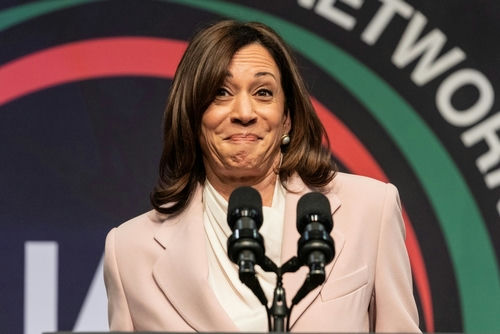The involvement of Kamala Harris in league-specific controversies has raised questions about political overreach in sports.
Vice President’s Involvement in WNBA Controversy
In early October 2025, former Vice President Kamala Harris engaged directly with WNBA player Napheesa Collier to discuss an alleged conversation involving WNBA Commissioner Cathy Engelbert. This engagement is drawing significant attention due to Collier’s outspoken remarks about league leadership and the broader context of athlete advocacy within women’s professional basketball. The meeting exemplifies the intersection of athlete activism, league governance, and political engagement, raising questions about the role of political figures in sports.
The meeting between Harris and Collier has sparked a wave of social media commentary and video analysis. Collier has been vocal about her dissatisfaction with league leadership, and her remarks have amplified scrutiny of Cathy Engelbert’s management. The lack of official statements from the commissioner further fuels speculation surrounding the league’s internal dynamics and the potential for political figures to influence sports governance.
Historical Context of Athlete Activism
The WNBA has a history of player activism, particularly concerning social justice, pay equity, and league governance. Tensions between players and league leadership have surfaced periodically, often regarding working conditions and compensation. The Biden-Harris administration has previously shown support for women’s sports and athlete advocacy, emphasizing gender equity and athlete rights. This background provides a context for Harris’s involvement, although it raises questions about the appropriateness and potential impact of political figures meddling in league affairs.
Napheesa Collier explains why she wrote the statement criticizing WNBA commissioner Cathy Engelbert in a conversation with former VP Kamala Harris at #UnreasonableConversation in LA. pic.twitter.com/o2BOXHZmUU
— maxwell millington (@mxwzy) October 7, 2025
Past WNBA player protests and advocacy campaigns have set precedents for athlete-political leader engagement. However, critics warn of the risks associated with politicizing sports governance, suggesting that such involvement could undermine league autonomy and lead to unintended consequences. The growing influence of athlete activism in shaping league policy is evident, yet it also poses challenges for league leaders trying to balance player demands with organizational stability.
Implications for WNBA Governance
The immediate implications of the Harris-Collier meeting include heightened attention to WNBA governance and player concerns. In the long term, this engagement could lead to policy changes within the league and increased political involvement in sports. The situation remains fluid, with ongoing discussions among stakeholders and an increase in media scrutiny of league governance and player relations. The potential shifts in league policy and player compensation, coupled with increased political advocacy in women’s sports, could set a precedent for other leagues and influence public perceptions of women’s sports governance.
The story also highlights the broader socio-economic and political impacts of such engagements. While supporters argue that political involvement is necessary for advancing athlete rights, critics caution against overreach that may threaten the league’s stability and autonomy. As the situation evolves, further developments are likely, as more stakeholders respond and additional perspectives emerge.
Sources:
Napheesa Collier tells Kamala Harris why she called out …

